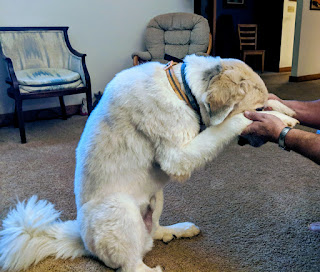Even though I am not a young person, I have experienced Wheelchair shaming.
Borrowed/reposted from Cressida M.R. Hale
We Need More Awareness of Ambulatory Wheelchair Users
As science and medicine continue to evolve over time, hammer-wielding advocates and a new generation, devoted to both awareness and education, shatter outdated stereotypes. However, there’s still a battle for awareness about ambulatory wheelchair use. The term refers to individuals who are disabled and use wheelchairs but are capable of walking in some circumstances. I am one of these individuals.
There are many reasons why a person may be an ambulatory wheelchair user. My own reason is my debilitating fatigue, unsteady, injury-prone joints, and syncope (or fainting). Other reasons may include lower-body injuries, joint pain, or unsteadiness. The list continues on because mobility aids are not just for geriatric and paraplegic use. Mobility aids provide people of all ages and illnesses with a sense of freedom.
Medicine continues to advance and is beginning to recognize both invisible and chronic illnesses among the younger generations. In fact, young people account for the majority of mobility aid users. Yet the harmful and outdated stereotypes surrounding wheelchair use often get used as a public weapon against young individuals, especially those whose disabilities may not be visible. Many ambulatory wheelchair users report harassment and discrimination simply because the public is unaware of ambulatory wheelchair use.
In my experience, there is nothing more humiliating and frustrating than needing to explain your physical health to someone who is judging you for needing a mobility aid. We do not require able-bodied individuals to disclose personal information to strangers, yet we demand this of ambulatory wheelchair users simply because they don’t fit a stereotype. Here are some of the common myths and comments we face, followed by my responses.
“You’re taking away from the people who really need it.” Just because we can walk doesn’t mean we don’t need mobility aids. Our lives would be a whole lot simpler if we did not need these aids in the first place. Also, it’s not like there is a wheelchair shortage.
“You don’t look paralyzed.” Well, you don’t look like a doctor. We generally consider judging someone by their appearance to be impolite. Judging someone’s health by their appearance is a guaranteed way to make a fool of yourself. Unless you have been to medical school and you are my physician, please keep your assumptions to yourself.
“You’re too young to need a wheelchair.” People commonly say this, and it makes very little sense. If I were to say, “You look too old to be standing on your own two feet,” that would be considered rude, so why is it OK for you to say it to us?
It’s time to destroy the stereotypes we associate with disabilities and wheelchair users. We just want the same independence everyone else enjoys.


No comments:
Post a Comment